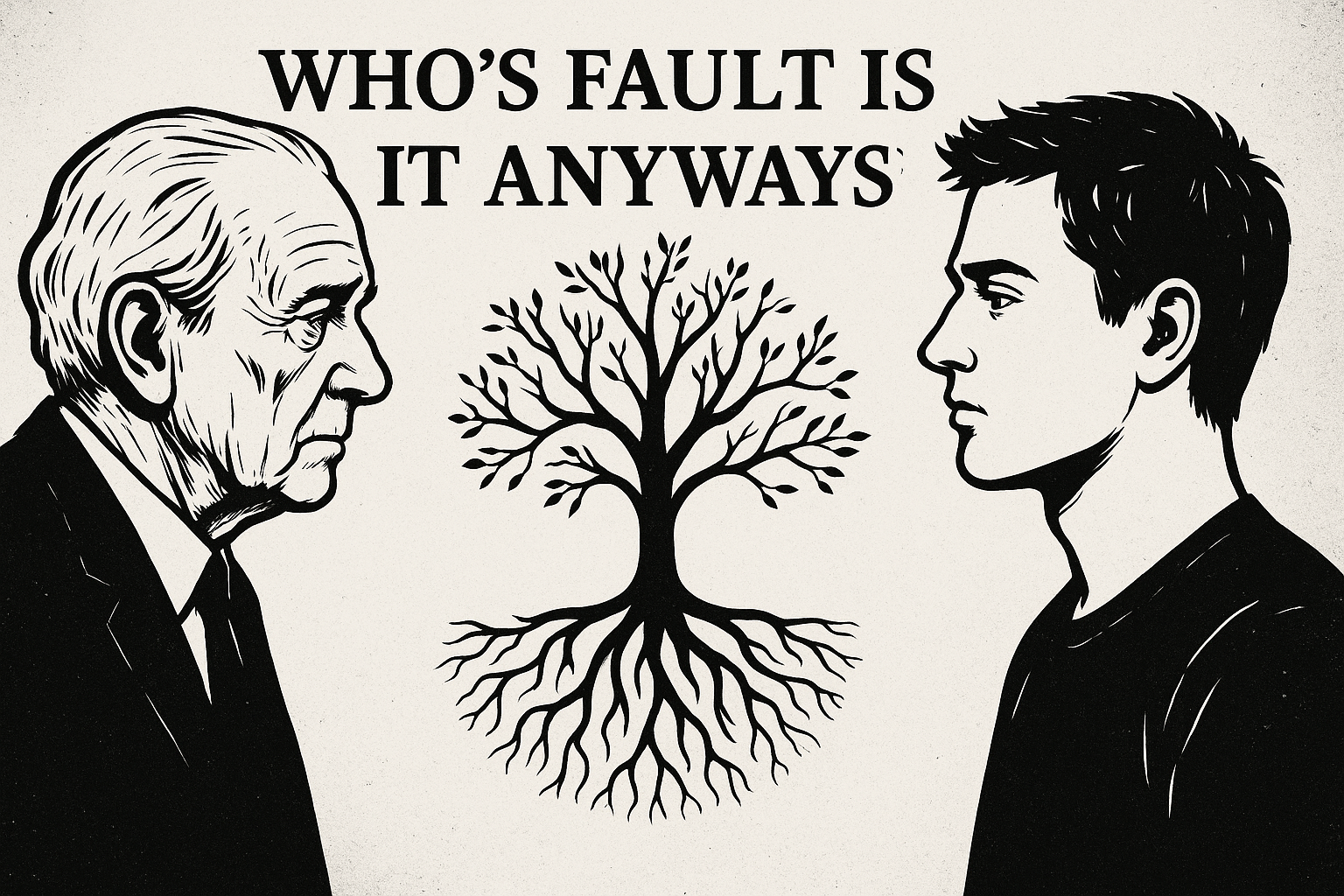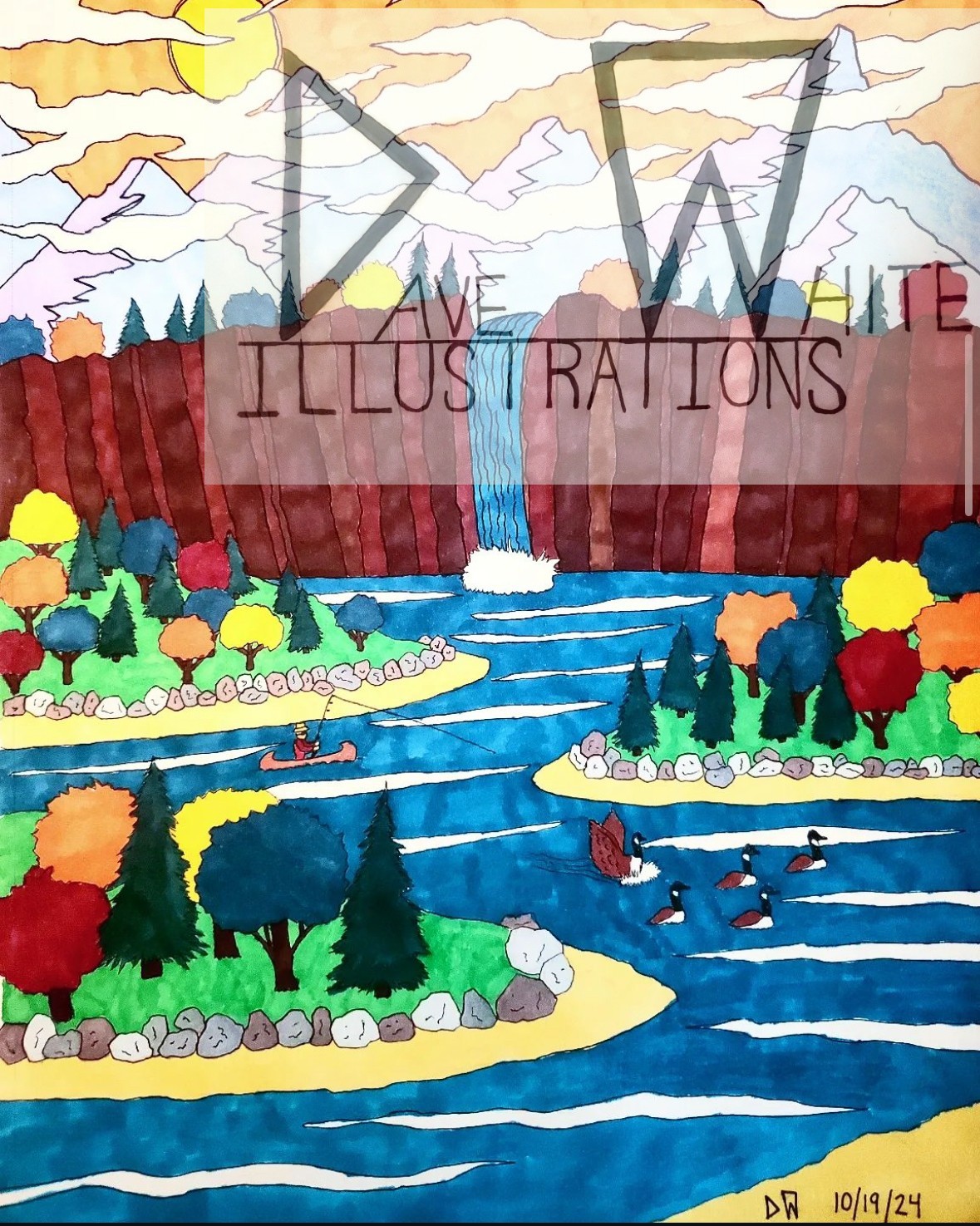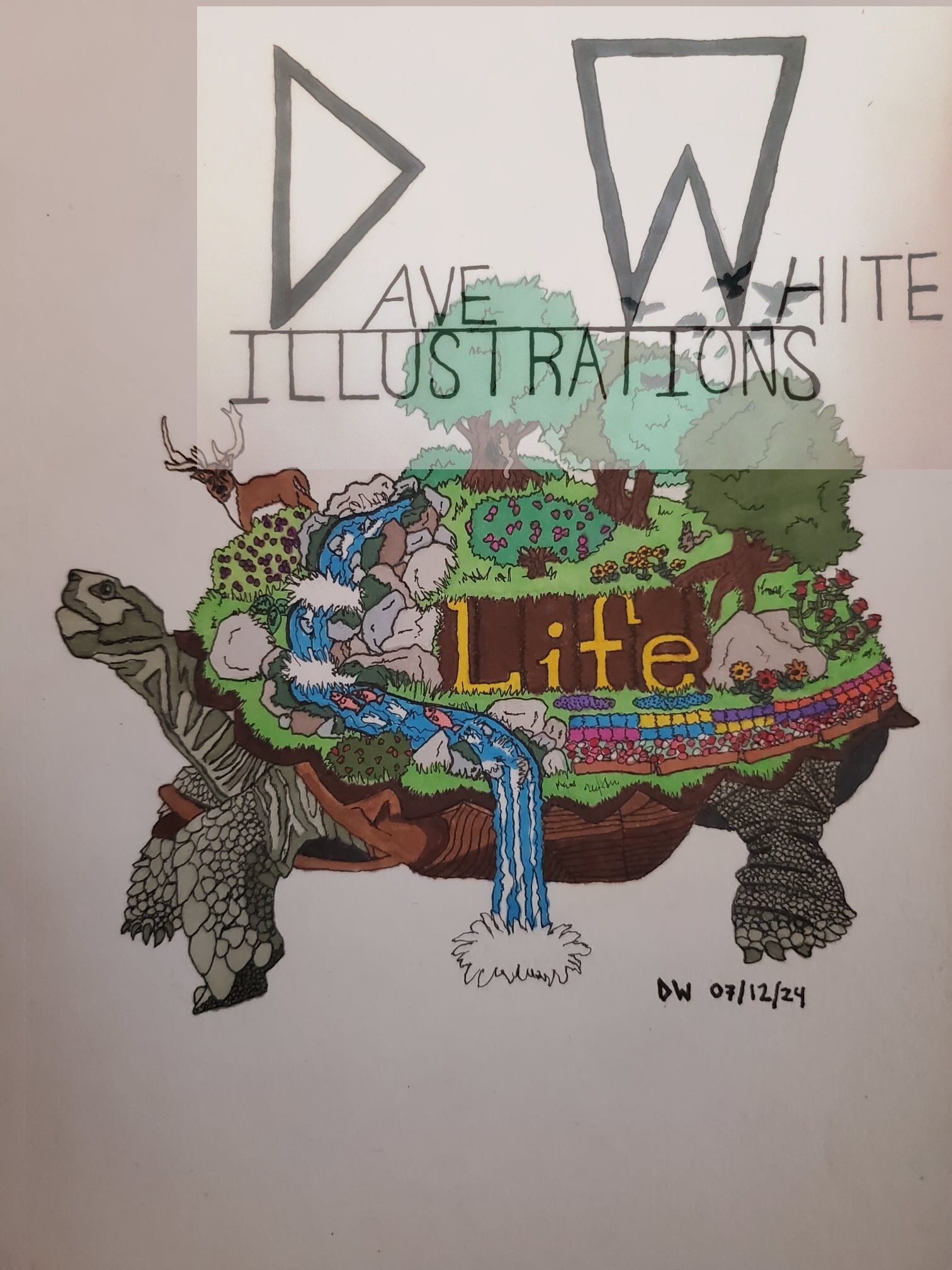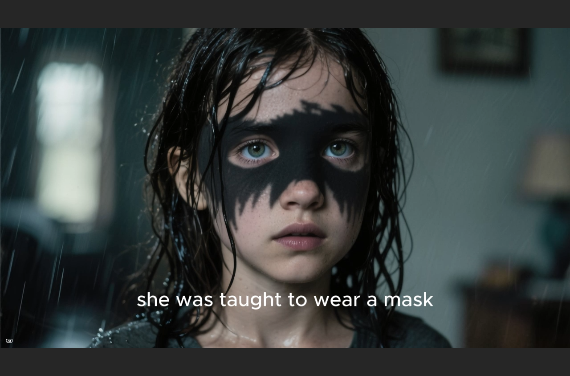“Some people blame our generation, but have they ever stopped and thought who raised us?”
-Alex. (2009, June 24). Some people blame our generation, but have they ever stopped to think who raised us? Retrieved from alexblogsnow.blogspot.com
This quote highlights a significant generational divide and the tendency for older generations to criticize the younger ones without reflecting on their own influence. It’s important to consider that while the younger generation is often blamed for current issues such as environmental degradation and economic challenges, they were raised and taught by the older generation.
Intergenerational Responsibility
Cultural Transmission:
The values, habits, and knowledge passed down from one generation to the next form the foundation of societal norms and behaviors. If the younger generation exhibits behaviors or attitudes that are deemed problematic, it’s worth questioning how these were cultivated by the previous generation.
Environmental Impact
Many of the environmental issues we face today, such as climate change, pollution, and deforestation, have roots in the industrial practices and policies established by older generations. These practices have created a legacy that the younger generation must now contend with and seek to rectify.
Economic Practices:
The economic systems and structures that are criticized today were largely shaped and maintained by previous generations. Issues like rising debt, housing crises, and job market instability are outcomes of long-standing policies and decisions that predate the current generation.
Educational Systems:
The education system is a crucial factor in shaping a generation’s worldview and capabilities. If there are shortcomings in how the younger generation addresses problems, it might reflect the limitations and priorities of the education they received.
Mutual Accountability & Shared Healing
Reflection and Adaptation:
Rather than assigning blame, it’s essential for all generations to engage in self-reflection and adapt to changing circumstances. The older generation should recognize their role in shaping the current state of affairs and support the younger generation in finding solutions.
Collaborative Efforts:
Solving complex issues like climate change and economic instability requires collaborative efforts across generations. Leveraging the wisdom and experience of the older generation along with the innovation and energy of the younger generation can lead to more effective and sustainable solutions.
Intergenerational Dialogue:
Open and constructive dialogue between generations can help bridge understanding and foster mutual respect. This can lead to more cohesive efforts in addressing shared challenges.
While it is simple to hold the younger generation accountable for today’s problems, it is equally important to recognize that the older generation played a significant role in forming the current situation. Environmental degradation, economic instability, and cultural norms did not appear in isolation—they were inherited. To move forward, we need more than blame; we need reflection, humility, and collaboration.
Rather than a cycle of accusation, what is needed is a cycle of dialogue: older generations offering their wisdom while acknowledging their missteps, and younger generations bringing energy, innovation, and vision while honoring the lessons of the past. Together, these exchanges can transform generational divides into generational bridges.
Poetic Bipolar Mind: Generations in Reflection
This is where Poetic Bipolar Mind finds its voice. Much of my writing explores how personal and generational inheritances—whether silence, trauma, or resilience—shape our lives. Just as society inherits its ecological and economic legacies, we as individuals inherit unspoken family stories, cultural weight, and even wounds that travel through time.
Writing becomes the place where these inheritances are confronted. Each poem or reflection is an act of dialogue across generations: between who we were taught to be, who we fear we’ve become, and who we strive to grow into. The same call for intergenerational responsibility on a societal level echoes within us—asking us to face what was passed down while also daring to create something new.
In this sense, Poetic Bipolar Mind is not just personal testimony but also a reminder of our shared task: to reckon with the past, to honor its lessons, and to write forward into a future where responsibility is collective and healing is possible.
References
Freire, P. (2000). “Pedagogy of the Oppressed.” Bloomsbury Publishing. ISBN: 978-0826412768.
Howe, N., & Strauss, W. (2000). “Millennials Rising: The Next Great Generation.” Vintage Books. ISBN: 978-0375707193.
Mannheim, K. (1952). “The Problem of Generations.” In “Essays on the Sociology of Knowledge” (pp. 276-322). Routledge & Kegan Paul. ISBN: 978-0710032824.
Steffen, W., Crutzen, P. J., & McNeill, J. R. (2007). “The Anthropocene: Are humans now overwhelming the great forces of nature?” AMBIO: A Journal of the Human Environment, 36(8), 614-621. DOI: 10.1579/0044-7447(2007)36[614
]2.0.CO;2
Twenge, J. M., & Campbell, W. K. (2008). “Generational differences in psychological traits and their impact on the workplace.” Journal of Managerial Psychology, 23(8), 862-877. DOI: 10.1108/02683940810904367
Darling-Hammond, L. (2010). “The Flat World and Education: How America’s Commitment to Equity Will Determine Our Future.” Teachers College Press. ISBN: 978-0807749623.
Galbraith, J. K. (2012). “Inequality and Instability: A Study of the World Economy Just Before the Great Crisis.” Oxford University Press. ISBN: 978-0199855650.
Piketty, T. (2014). “Capital in the Twenty-First Century.” Harvard University Press. ISBN: 978-0674430006.
Sachs, J. D. (2015). “The Age of Sustainable Development.” Columbia University Press. ISBN: 978-0231173155.
McKibben, B. (2019). “Falter: Has the Human Game Begun to Play Itself Out?” Henry Holt and Co. ISBN: 978-1250178268.





Leave a Reply